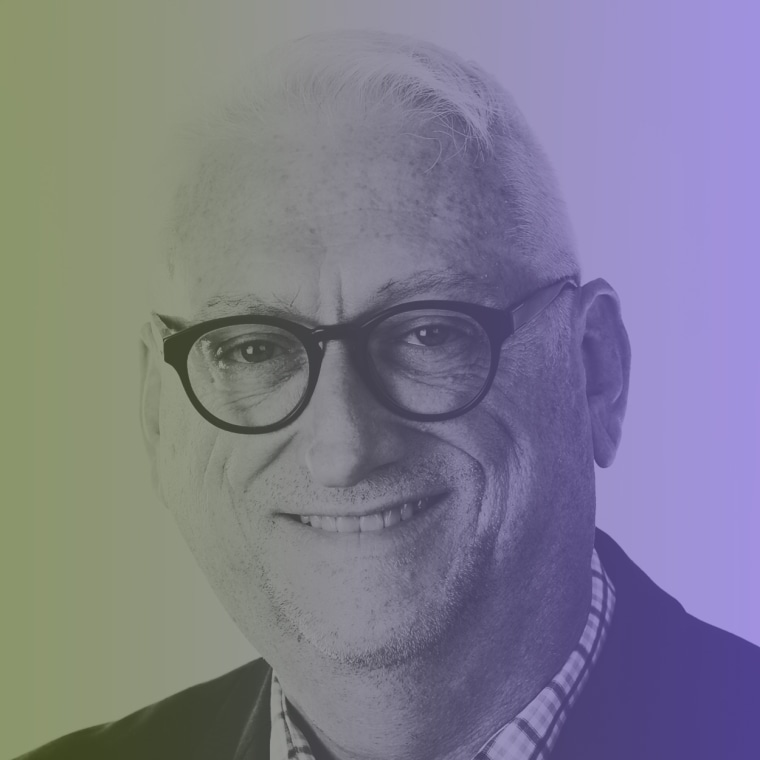Jerry Mallicoat, 58, has fought for LGBTQ rights in Ohio his entire adult life. Now, he’s helping LGBTQ elders lead active and fulfilled lives.
Mallicoat co-founded Rainbow Elder Care of Greater Dayton, which provides advocacy, educational resources, support and referral services to the elder lesbian, gay, bisexual, transgender and queer community.

Mallicoat said caring for his own aging parents made him confront the fact that without children, he’d have no one to take care of him at the end of his life. He realized this was a problem for many LGBTQ elders who never had children.
Rainbow Elder Care helps LGBTQ elders lead affirmed lives, Mallicoat said, adding that people who are aging deal with isolation and loneliness.
“But it’s even more difficult for older LGBTQ people, because there is still stigma and discrimination, misunderstanding and fear, and because of the patchwork of legal rights we’ve had over the years,” he said.
Mallicoat grew up in a fundamentalist Christian household in southwestern Ohio — an experience he recalled as “not at all pleasant.”
He was inspired to come out of the closet after his idol, gay rights activist Harvey Milk, was assassinated in 1978. Mallicoat, who was a student at Ohio State University at the time, joined the university’s gay alliance and never looked back.
Mallicoat, a long-time survivor of HIV, currently serves as the LGBTQ health initiatives manager for Public Health - Dayton & Montgomery County, where he leads a coalition that addresses LGBTQ health disparities and educates health care and service providers about LGBTQ cultural competence..
In 2013, Mallicoat, who lives in Dayton, started Rainbow Elder Care with a few members from his local church.
He said the best thing about working with LGBTQ elders is “the rich history everyone has.”
“We have a beautiful, beautiful tapestry of humanity in the LGBTQ community,” Mallicoat said. “We have people from all communities, and for me, it’s important that we appreciate and recognize the contributions that all of those people have made on the journey to get us to where they are, and we have so much to thank them for and so much to learn from them.”
What does "pride" mean to you?
“Pride for me is an acknowledgment and celebration of our journey, and that earlier sort of tapestry of humanity in our community, that we come from every walk of life, so it’s our opportunity to say ‘Hey, world, look at the beauty of humanity,” whether you are African American, trans, a person who is living with a disability, no matter who you are, what your background is, if you’re LGBTQ and even an ally... and I think that it’s also a celebration of our journey for full equality. I think it’s an opportunity for us to catch a breath and pause and look at where we’ve been, where we are and get focused on where we are going. For me, it just helps inspire me and gives me strength for the next part of the journey.”
This year, we’re celebrating Stonewall 50 — the 50th anniversary of the 1969 Stonewall Rebellion. Where would you like to see the LGBTQ community when we’re celebrating Stonewall 75?
“I would like to see full equality for everyone in our community, and so what I mean by that is that across the country, our community would have legal protections for housing and employment and public accommodations. I would like to see a lot of the progress and understanding and affirmation for trans and queer individuals. There is still a tendency for people to want to view others and live in nice little boxes, and no humans are built that way, and I think part of the power of our journey, or our witness as the LGBTQ community to a greater community and to the world, is to understand and respect everyone as a unique human being. We all want the same things ultimately. We all want good health, safety, love, respect, and that’s where I hope we’ll be 25 years from now. We’ll feel secure in that our legal rights to a home, to employment, to health care, all those basic needs, are secure and that we will have a much better understanding of one another’s individuality and of collectively a better world. And right now, unfortunately, our trans brothers and sisters, everyone in-between, aren’t being affirmed, and in fact they’re being denigrated and diminished, and that has to stop. In 25 years from now I hope we can look back and say it was difficult, we fought through it, but look at where we are now — standing shoulder to shoulder as unique, affirmed individuals who are safe and appreciated in our own country.”
